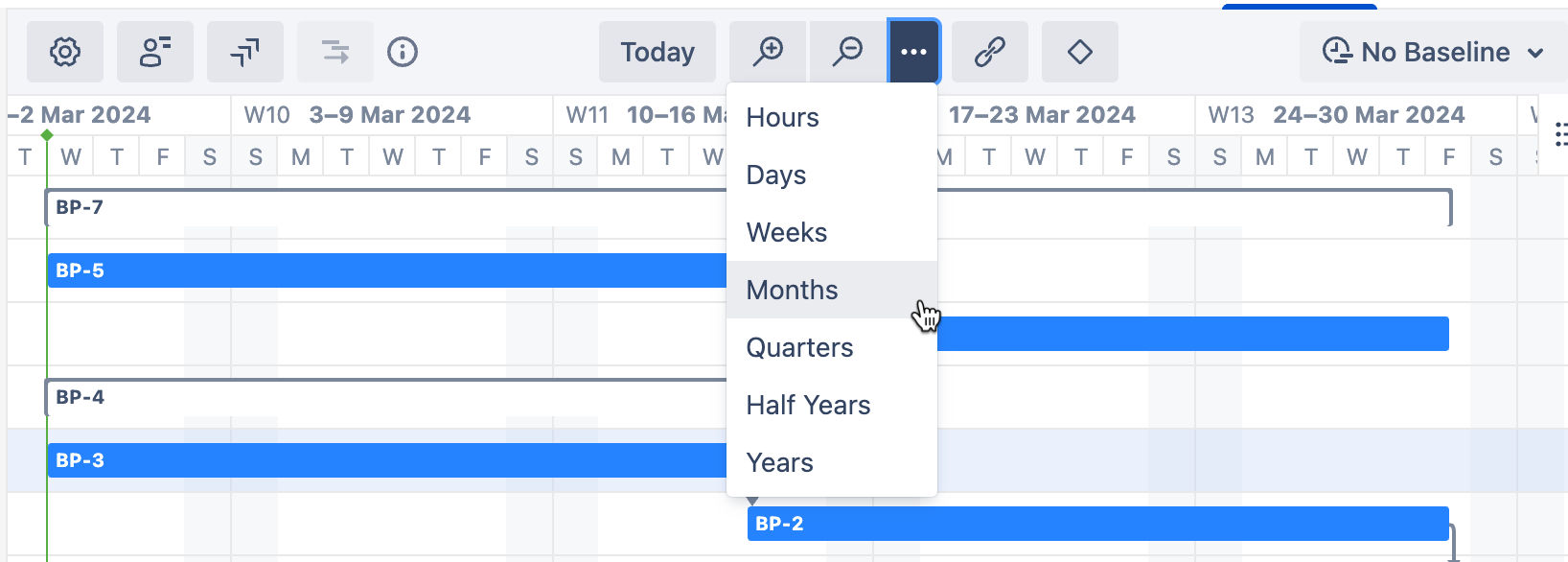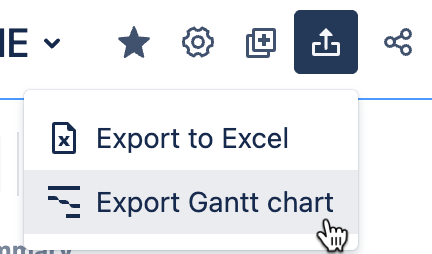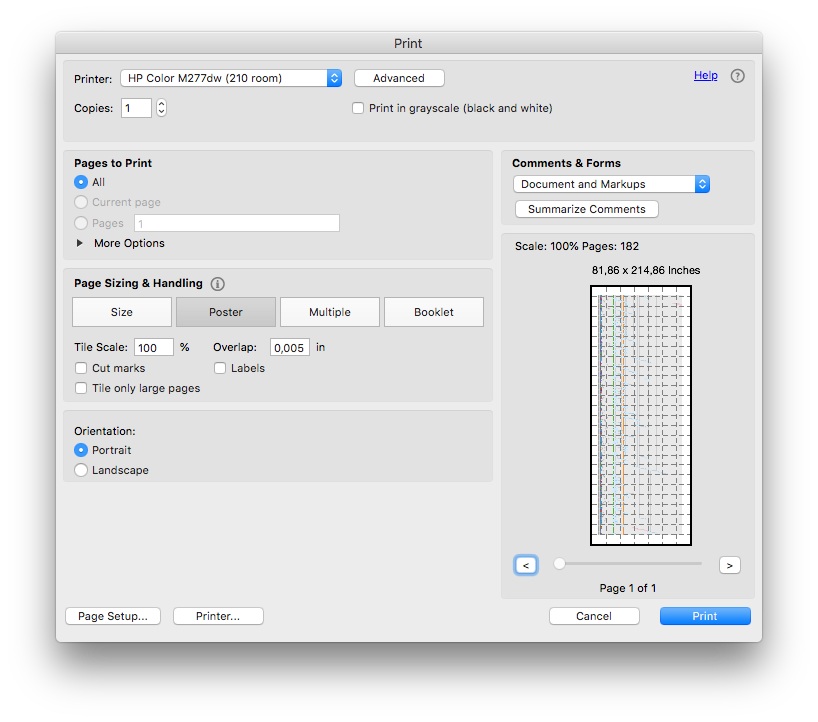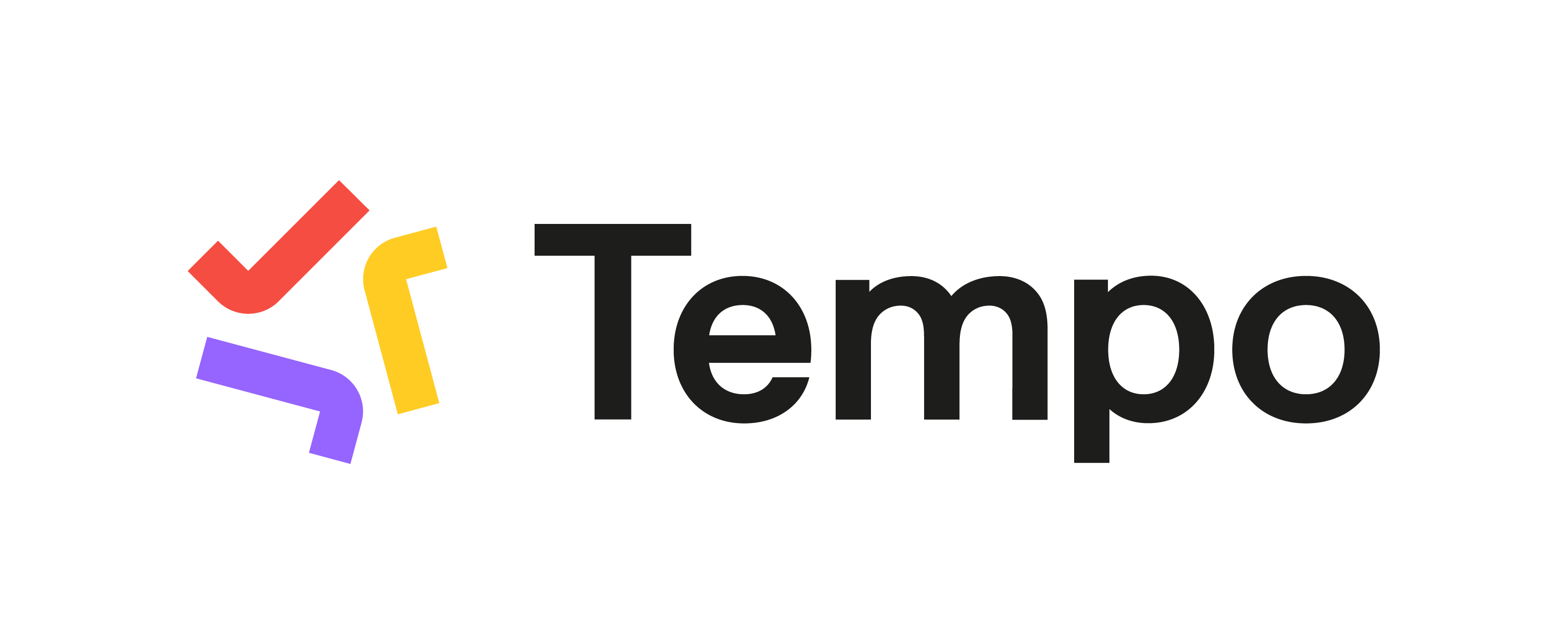It is possible to export a Gantt chart into a PDF or SVG file to view offline, print, or share with someone else.

Configuring Hierarchy Level and Zoom
Certain parameters of your Gantt chart export are based on the layout of the structure and chart on your screen, including the hierarchy level and zoom level. You should select the desired hierarchy and zoom levels before exporting your Gantt chart.
To configure hierarchy level, you may expand or collapse items manually or use Structure's expand/collapse menu. There are three toolbar buttons you may find useful: Expand all items, Collapse all items and Expand items for specified level.

To configure the chart's zoom level, use the Gantt chart zoom toolbar buttons. You can zoom in, zoom out or select a specific unit for your time scale.

Export Gantt Chart
Once you have set the desired hierarchy and zoom levels, click Export | Export Gantt Chart.

On the Export Gantt Chart window, you will be given a number of options for customizing the settings and appearance of your output file.
-
Output format - Select the format you want your chart saved in, either PDF (default) or SVG. PDF format is useful for exporting large charts that you want to print, while SVG is ideal for sharing or embedding into other graphical materials.
-
Color Scheme - Select the color scheme to use for the exported chart: Standard or Black and White (optimized for black and white printing).
-
Range - By default, the entire timeline (Whole Chart) is included in your export, from your earliest to latest tasks. To export only a portion of the timeline, select Custom Dates and enter a date rage to include. You can also specify just the Start Date to include only items starting on or after that date.
-
Year Start - Dates displayed in the timeline will use the selected month as the start of the fiscal year. For example, if you select November, then November 2020 will be treated as 2021, since this is the start of the new fiscal year. To always display the actual calendar date, leave this set to "January."
-
Item information and Gantt Chart Details - These allow you to choose which details will be shown on your exported chart.
-
Export empty rows - By default, all chart rows are included in the export, even if they are empty (tasks are scheduled outside of the time range). To remove empty rows, deselect this option. Note: removed rows will be omitted from the WBS section as well, and parent-child relations may be affected.
-
WBS - Check this box to include the work breakdown structure (including the Key and Summary columns) alongside the chart.
-
Width - This allow you to specify the width (in pixels) of the included work breakdown structure.
Once you have finished with chart configurations, press Export to create and download your export file.
Exporting
Depending on the size of the chart, selected output format and your network bandwidth, export may take several seconds or (in some cases) even minutes. A progress dialog will keep you informed about the status of your export. As soon as the export is completed, download should begin automatically.
Depending on your browser settings, you might be asked to select a destination folder for the downloaded file or choose an application to open the file.
If you are not prompted for a download location, check your browser's default download location for the exported chart. The download file should have the same name as the exported structure.
Fonts in the exported PDF may be different than those that are used in the web version of the Gantt chart.
Printing Large Charts
Sometimes you may wish to print a large chart to place at a desk or on a wall. This is possible with the help of Adobe Acrobat Reader DC.

Acrobat Reader allows you to print any large picture as a Poster, i.e. it will automatically split it into a number of pages that can be combined later into a full-size picture. To do so, open your PDF file in the Acrobat Reader and select File | Print to reveal the printing dialog. Under Page Sizing & Handling, select Poster. You can configure additional options, such as tile scaling and overlapping, to suit your needs. For best quality, we recommend setting Tile Scale to "100%".
Adobe limits PDF pages to 200 inches (~5m) and will cut extra graphics if your exported chart exceeds this limit.
